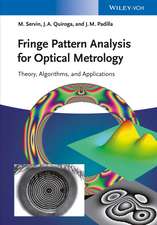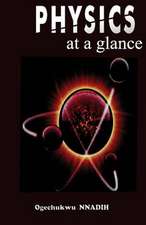The Geometry of Musical Rhythm: What Makes a "Good" Rhythm Good?, Second Edition: AK Peters/CRC Recreational Mathematics Series
Autor Godfried T. Toussainten Limba Engleză Hardback – 10 dec 2019
| Toate formatele și edițiile | Preț | Express |
|---|---|---|
| Paperback (1) | 390.89 lei 3-5 săpt. | +37.66 lei 7-11 zile |
| CRC Press – 19 dec 2019 | 390.89 lei 3-5 săpt. | +37.66 lei 7-11 zile |
| Hardback (1) | 1021.70 lei 6-8 săpt. | |
| CRC Press – 10 dec 2019 | 1021.70 lei 6-8 săpt. |
Din seria AK Peters/CRC Recreational Mathematics Series
-
 Preț: 390.89 lei
Preț: 390.89 lei -
 Preț: 393.72 lei
Preț: 393.72 lei - 8%
 Preț: 393.15 lei
Preț: 393.15 lei -
 Preț: 292.12 lei
Preț: 292.12 lei -
 Preț: 211.03 lei
Preț: 211.03 lei -
 Preț: 223.94 lei
Preț: 223.94 lei -
 Preț: 243.16 lei
Preț: 243.16 lei -
 Preț: 360.48 lei
Preț: 360.48 lei -
 Preț: 201.47 lei
Preț: 201.47 lei - 8%
 Preț: 500.84 lei
Preț: 500.84 lei -
 Preț: 184.01 lei
Preț: 184.01 lei -
 Preț: 220.61 lei
Preț: 220.61 lei -
 Preț: 246.20 lei
Preț: 246.20 lei -
 Preț: 191.51 lei
Preț: 191.51 lei -
 Preț: 282.38 lei
Preț: 282.38 lei -
 Preț: 359.04 lei
Preț: 359.04 lei -
 Preț: 242.37 lei
Preț: 242.37 lei -
 Preț: 223.47 lei
Preț: 223.47 lei -
 Preț: 317.82 lei
Preț: 317.82 lei -
 Preț: 192.53 lei
Preț: 192.53 lei - 8%
 Preț: 474.63 lei
Preț: 474.63 lei -
 Preț: 360.58 lei
Preț: 360.58 lei -
 Preț: 232.45 lei
Preț: 232.45 lei -
 Preț: 192.32 lei
Preț: 192.32 lei -
 Preț: 293.52 lei
Preț: 293.52 lei - 9%
 Preț: 570.74 lei
Preț: 570.74 lei -
 Preț: 161.39 lei
Preț: 161.39 lei -
 Preț: 238.17 lei
Preț: 238.17 lei -
 Preț: 191.94 lei
Preț: 191.94 lei - 8%
 Preț: 417.31 lei
Preț: 417.31 lei - 18%
 Preț: 1063.41 lei
Preț: 1063.41 lei - 26%
 Preț: 1042.56 lei
Preț: 1042.56 lei - 17%
 Preț: 253.55 lei
Preț: 253.55 lei - 25%
 Preț: 496.94 lei
Preț: 496.94 lei - 8%
 Preț: 502.87 lei
Preț: 502.87 lei -
 Preț: 378.60 lei
Preț: 378.60 lei - 26%
 Preț: 933.23 lei
Preț: 933.23 lei -
 Preț: 323.21 lei
Preț: 323.21 lei - 18%
 Preț: 1217.60 lei
Preț: 1217.60 lei - 18%
 Preț: 179.93 lei
Preț: 179.93 lei -
 Preț: 324.46 lei
Preț: 324.46 lei - 18%
 Preț: 1275.23 lei
Preț: 1275.23 lei
Preț: 1021.70 lei
Preț vechi: 1370.64 lei
-25% Nou
Puncte Express: 1533
Preț estimativ în valută:
195.49€ • 204.13$ • 161.44£
195.49€ • 204.13$ • 161.44£
Carte tipărită la comandă
Livrare economică 15-29 aprilie
Preluare comenzi: 021 569.72.76
Specificații
ISBN-13: 9780815350385
ISBN-10: 0815350384
Pagini: 370
Ilustrații: 300
Dimensiuni: 210 x 280 x 22 mm
Greutate: 0.84 kg
Ediția:2
Editura: CRC Press
Colecția Chapman and Hall/CRC
Seria AK Peters/CRC Recreational Mathematics Series
Locul publicării:Boca Raton, United States
ISBN-10: 0815350384
Pagini: 370
Ilustrații: 300
Dimensiuni: 210 x 280 x 22 mm
Greutate: 0.84 kg
Ediția:2
Editura: CRC Press
Colecția Chapman and Hall/CRC
Seria AK Peters/CRC Recreational Mathematics Series
Locul publicării:Boca Raton, United States
Public țintă
Academic and Professional Practice & DevelopmentCuprins
What Is Rhythm?. A Steady Beat. Timelines, Ostinatos, and Meter. The Wooden Claves. The Iron Bells. The Clave Son. Six Distinguished Rhythm Timelines. The Distance Geometry of Rhythm. Classification of Rhythms. Binary and Ternary Rhythms. The Isomorphism of Rhythm and Scale. Binarization, Ternarization, and Quantization of Rhythms. Syncopated Rhythms. Necklaces and Bracelets. Rhythmic Oddity. Off-Beat Rhythms. Rhythm Complexity. Dispersion Problems and Maximally Even Rhythms. Euclidean Rhythms. Leap Years: The Rhythm of the Stars. Approximately Even Rhythms. Rhythms and Crystallography. Complementary Rhythms. Radio Astronomy and Flat Rhythms. Deep Rhythms. Shelling Rhythms. Phantom Rhythms. Reflection Rhythms and Rhythmic Canons. Toggle Rhythms. Symmetric Rhythms. Odd Rhythms. Other Representations of Rhythm. Rhythmic Similarity and Dissimilarity. Regular and Irregular Rhythms. Evolution and Phylogenesis of Musical Rhythm. Rhythmic Combinatorics. What Makes the Clave Son Such a Good Rhythm?. The Origin, Evolution, and Migration of the Clave Son. Epilogue. References. Index.
Recenzii
"The late Godfried Toussaint studied the rhythms of the world like a gold panner, collecting with meticulousness and passion all the motifs that different cultures have given birth to. Thanks to his skill as a mathematician, he extracted fascinating properties from them. There is no doubt that this unique book will survive for a very long time."
—Marc Chemillier, Directeur d'études, École des Hautes Études en Sciences Sociales
"Through the original use of distance geometry for analyzing musical rhythm and the visualization of rhythms as cyclic polygons, Gottfried Tousssaint’s fascinating book will be extremely valuable to any researcher involved in in the field of rhythm."
—Simha Arom, Ethnomusicologist
"The new edition of The Geometry of Musical Rhythm takes us further along Godfried Toussaint’s journey through the world’s rhythms. There are new discussions of metric complexity, rhythm visualization, rhythmic performance, and the evolution of rhythmic patterns. Almost every chapter has been expanded and informed by the latest scholarship in music theory, music psychology, ethnomusicology, and music informatics. Specialists and lay readers alike will find this edition even more engaging and valuable than the first, giving us even more reasons to delight in what makes a "good" rhythm good."
— Professor Justin London, Carleton College
"A unique and seminal work of original and meticulously detailed scholarship, this newly published second edition of "The Geometry of Musical Rhythm : What Makes a "Good" Rhythm Good?" is unreservedly recommended as a core addition to both college and university library collections."
—Midwest Book Review
Praise for the previous edition
"Toussaint’s Geometry presents a whirlwind tour of the world’s rhythms … For a reader interested in musical rhythm,Geometryis a great introduction to the computer science and mathematics of rhythm. For a reader interested in algorithms and mathematical reasoning, the musical focus provides compelling examples lying at the intersection of the arts and the sciences."
—William A. Sethares, Journal of Mathematics and the Arts, 2014
"… a delightful, informative, and innovative study in the geometric interpretation of rhythm. … It is a pleasure to find an author who has such good command of mathematics and music and who can explain their interconnections with such literary skill. I recommend this book wholeheartedly to every serious student of geometry and music."
—Ilhan M. Izmirli, Mathematical Reviews, March 2014
"This dynamic fluid presentation of mathematics is exactly what our undergraduate and graduate students need. … I would highly recommend this book for everyone."
—Russell Jay Hendel, MAA Reviews, May 2013
—Marc Chemillier, Directeur d'études, École des Hautes Études en Sciences Sociales
"Through the original use of distance geometry for analyzing musical rhythm and the visualization of rhythms as cyclic polygons, Gottfried Tousssaint’s fascinating book will be extremely valuable to any researcher involved in in the field of rhythm."
—Simha Arom, Ethnomusicologist
"The new edition of The Geometry of Musical Rhythm takes us further along Godfried Toussaint’s journey through the world’s rhythms. There are new discussions of metric complexity, rhythm visualization, rhythmic performance, and the evolution of rhythmic patterns. Almost every chapter has been expanded and informed by the latest scholarship in music theory, music psychology, ethnomusicology, and music informatics. Specialists and lay readers alike will find this edition even more engaging and valuable than the first, giving us even more reasons to delight in what makes a "good" rhythm good."
— Professor Justin London, Carleton College
"A unique and seminal work of original and meticulously detailed scholarship, this newly published second edition of "The Geometry of Musical Rhythm : What Makes a "Good" Rhythm Good?" is unreservedly recommended as a core addition to both college and university library collections."
—Midwest Book Review
Praise for the previous edition
"Toussaint’s Geometry presents a whirlwind tour of the world’s rhythms … For a reader interested in musical rhythm,Geometryis a great introduction to the computer science and mathematics of rhythm. For a reader interested in algorithms and mathematical reasoning, the musical focus provides compelling examples lying at the intersection of the arts and the sciences."
—William A. Sethares, Journal of Mathematics and the Arts, 2014
"… a delightful, informative, and innovative study in the geometric interpretation of rhythm. … It is a pleasure to find an author who has such good command of mathematics and music and who can explain their interconnections with such literary skill. I recommend this book wholeheartedly to every serious student of geometry and music."
—Ilhan M. Izmirli, Mathematical Reviews, March 2014
"This dynamic fluid presentation of mathematics is exactly what our undergraduate and graduate students need. … I would highly recommend this book for everyone."
—Russell Jay Hendel, MAA Reviews, May 2013
Descriere
The original edition of The Geometry of Musical Rhythm was the first book to provide a systematic and accessible computational geometric analysis of the musical rhythms of the world. It explained how the study of the mathematical properties of musical rhythm generates common mathematical problems that arise in seemingly disparate fields.
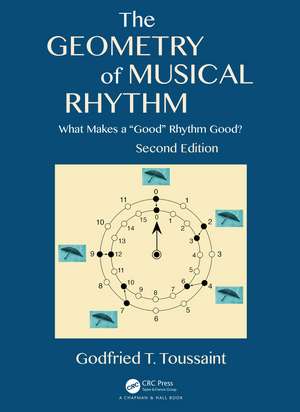

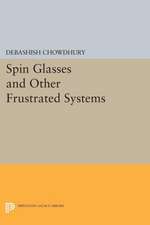
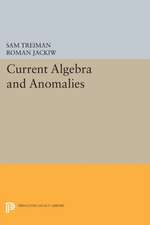
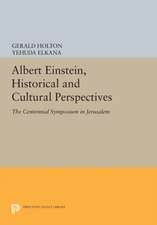
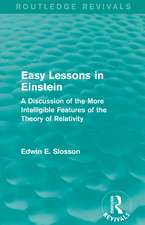

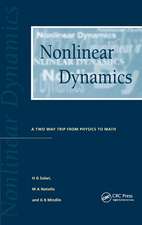






![Theorie Analytique de La Chaleur [Volume 1]](https://i2.books-express.ro/bt/9782013455275/theorie-analytique-de-la-chaleur-volume-1.jpg)





